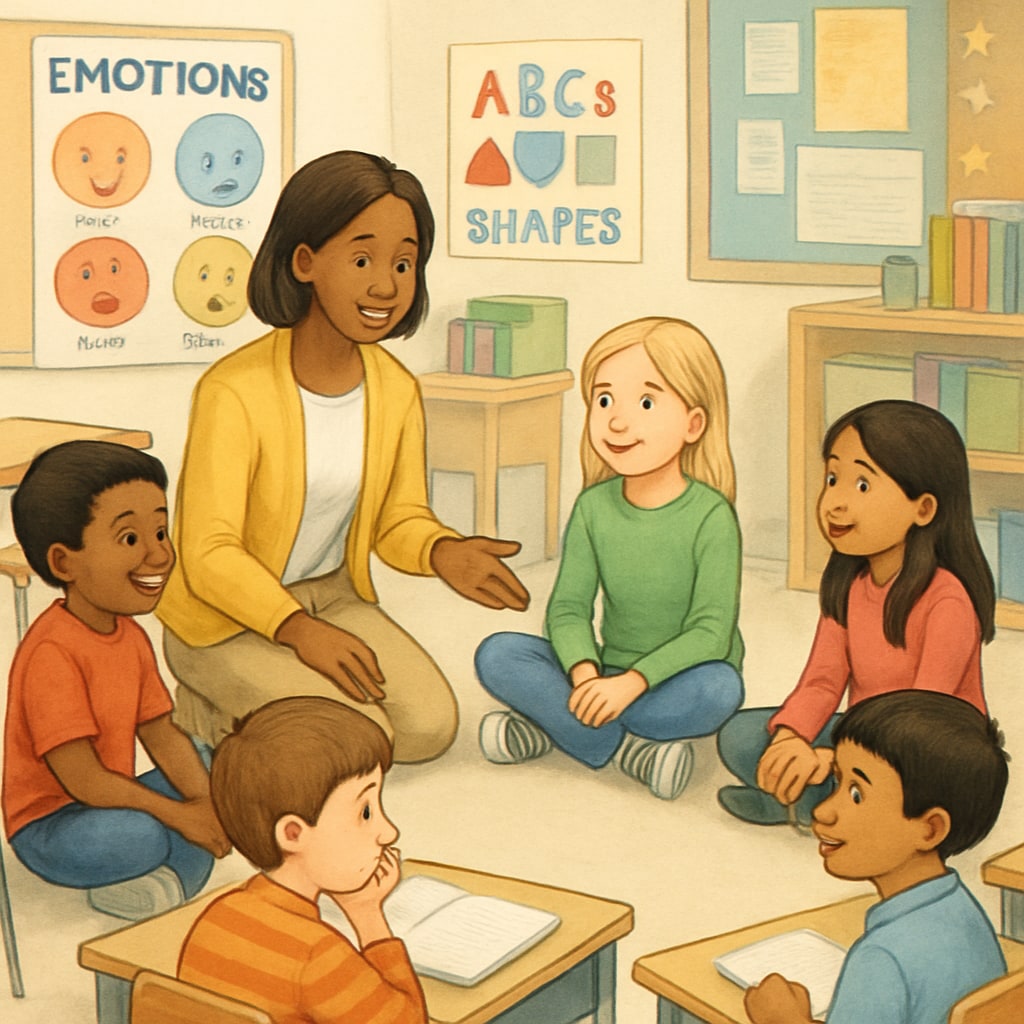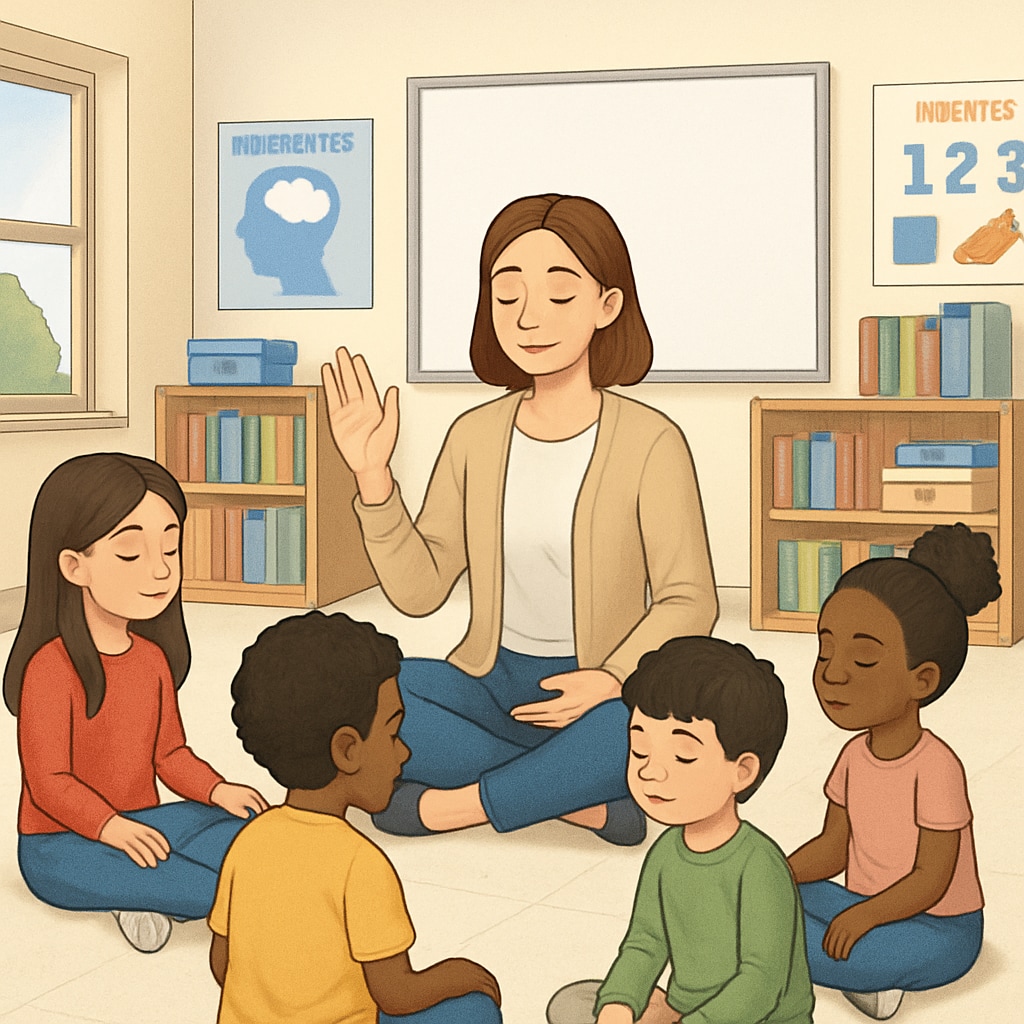Emotional education, child development, and emotional management are interconnected aspects of raising well-rounded individuals. While traditional education often emphasizes academic achievement, emotional education is equally critical in shaping a child’s ability to navigate life’s challenges. This article delves into why emotional education is necessary and how it helps children build healthy emotional responses, forming the foundation for lifelong success.
The Importance of Emotional Education in Child Development
Children experience a wide range of emotions daily, from happiness and excitement to frustration and sadness. Without guidance, they may struggle to manage these emotions effectively. Emotional education provides children with the tools to understand, express, and regulate their feelings in a healthy way. As a result, it plays a pivotal role in their overall development.
For example, children who receive emotional education are better equipped to handle conflicts, build relationships, and cope with stress. According to a study by the Collaborative for Academic, Social, and Emotional Learning (CASEL), integrating emotional education into early learning programs significantly improves emotional intelligence and reduces behavioral issues.
- Helps children recognize and label their emotions.
- Encourages empathy and understanding of others’ feelings.
- Promotes positive social interactions and relationships.
These skills are not only valuable in childhood but also contribute to success in adulthood. In today’s fast-paced world, emotional resilience has become an essential life skill.

How Emotional Education Shapes Healthy Emotional Responses
One of the primary goals of emotional education is to foster healthy emotional responses. Children who lack emotional management skills may develop harmful coping mechanisms, such as aggression or withdrawal. Emotional education mitigates these risks by teaching children constructive ways to handle their emotions.
For instance, mindfulness practices, role-playing, and storytelling are effective methods used in emotional education. These activities allow children to practice self-awareness and empathy in a safe environment. Additionally, parents and educators can model healthy emotional behaviors, creating a supportive atmosphere for children to learn.
Consider the following key components of emotional education:
- Self-Awareness: Teaching children to identify their emotions and recognize triggers.
- Self-Regulation: Providing strategies to manage intense feelings like anger or anxiety.
- Social Skills: Encouraging cooperation, communication, and conflict resolution.
- Empathy: Helping children understand and share the emotions of others.
By focusing on these areas, emotional education equips children with the tools they need to thrive in various social and personal contexts.

Incorporating Emotional Education into Daily Life
Parents and educators play a crucial role in embedding emotional education into children’s daily routines. Simple practices, such as encouraging open conversations about feelings, can make a significant difference. For example, asking children to describe their day’s highs and lows helps them articulate their emotions and reflect on their experiences.
Here are some practical tips for integrating emotional education at home and in schools:
- Use emotional vocabulary during conversations to normalize discussing feelings.
- Provide tools like emotion charts or journals for children to track their emotions.
- Encourage problem-solving by guiding children to brainstorm solutions to challenges.
- Incorporate books and media that highlight emotional themes and discussions.
Additionally, schools can adopt social-emotional learning (SEL) programs that align with academic curriculums. Programs like these not only improve emotional literacy but also foster a sense of community and belonging among students.
The Lifelong Impact of Emotional Education
The benefits of emotional education extend far beyond childhood. Adults who received emotional education as children are more likely to excel in their careers, maintain healthy relationships, and exhibit resilience during challenging times. Emotional intelligence, a skill nurtured through emotional education, is increasingly recognized as a predictor of success in both personal and professional life.
Moreover, emotional education contributes to mental health by providing tools to manage stress and prevent emotional burnout. As a result, it serves as a preventive measure against mental health issues, promoting overall well-being. According to the World Health Organization (WHO), integrating emotional education into early childhood development programs is a key strategy for improving global mental health outcomes.
In conclusion, emotional education is not just an optional add-on to traditional learning; it is a fundamental aspect of raising emotionally intelligent and resilient individuals. By prioritizing emotional education, we can ensure that children are equipped to lead fulfilling and balanced lives.
Readability guidance: This article uses short paragraphs, lists, and clear transitions to enhance readability. Overuse of passive voice is avoided, and technical terms are briefly explained for easier understanding.


